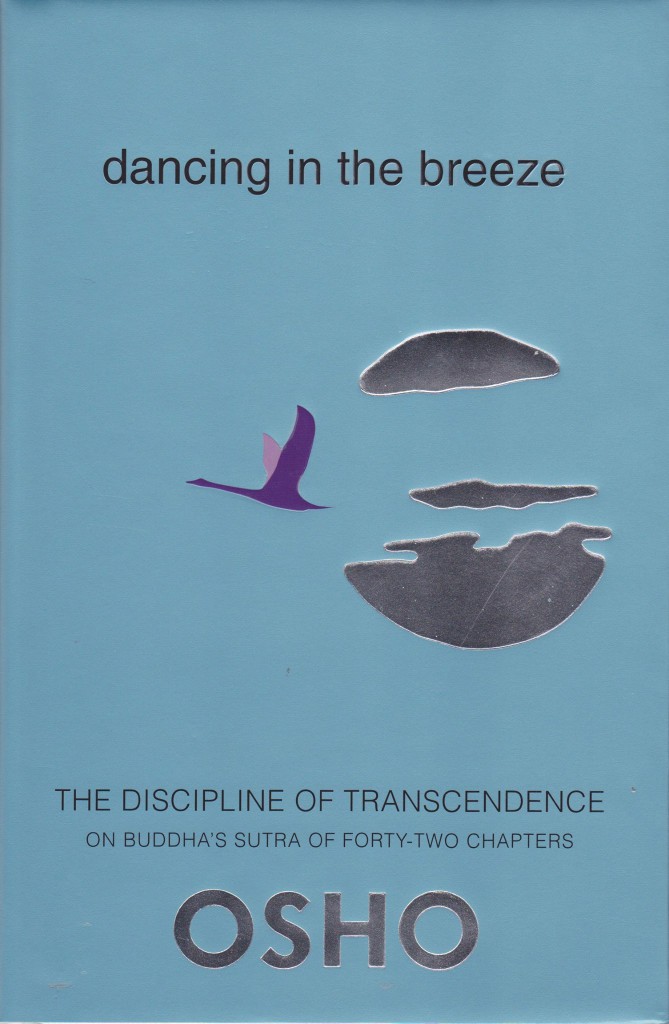
The Unconscious is Not a Natural Thing
The unconscious is not a natural thing. The unconscious is the part of your being that you have rejected and you don’t even want to face. You don’t want to encounter it, you don’t want to see that it exists at all. It is there: deep down in your being it goes on manipulating you. It will take many types of revenge because it also needs expression.
How Learning to be Good
Now, this is the whole misery of human beings. A good mother can create the idea of a bad child. The child himself starts rejecting himself. This is a division, a split in personality. The child is becoming neurotic because to feel good with oneself should be a natural and easy thing. That’s what your religious preachers go on doing, what your priests go on doing: go to the mosque, go to the temple, go to the church, and they are there – thundering, condemnatory, ready to throw you into hell, ready to reward you with heaven if you listen to them, if you follow them. Of course you cannot follow because their demands are impossible, and their demands are impossible because they don’t show you the way to be good. They simply say. “Be good.”
Centering in Your Being
The way to be good has nothing to do with being good. The way to be good has something to do with centering, with awareness. Being good has nothing to do with your character. A really good person has no character at all; he is characterless. And when I say “characterless,” I mean he has no armor, no armature around him. He has no defenses around him, he’s simply open. He’s as characterless as a flower. He’s neither good nor bad. He’s simply there – alert, conscious, responsible. If something happens he will respond, but he will respond directly, he will respond from here. He will respond out of the now, he will not respond out of the past. “Character” means you go on carrying the things that you have learned in your past. “Character” means the conscience that has been preached to you and forced upon you. Conscience is a prison for consciousness.
Buddha’s New Approach
Buddha brought a revolution into the world of religion, the greatest ever. The revolution was that he emphasized consciousness and not conscience. He emphasized awareness and not character. Of course, character comes automatically, but it comes like a shadow. You are not to carry it; it is not a burden then. Have you ever watched? Your shadow goes on following you, and you are not burdened, and you need not take care of it. You need not think about it. Even if you forget completely, it will be there. You cannot lose it.
Buddha says character is real only when you cannot lose it. If you are afraid that you can lose it, then it is conscience and not consciousness.
The discipline of Transcendence deel 4
‘Dancing in the Breeze’ is deel 4 van de prachtig uitgegeven herdrukken van ‘The Discipline of Transcendence’, met een schitterend design.
Osho heeft naar Boeddha verwezen als de eerste echt humanistische meester: hij is niet bezig met een God, met een andere wereld, met het paradijs of de hel. Boeddha is direct gericht op het verhogen van het  bewustzijn van de mens in dit leven en het in zeer wetenschappelijke, exacte woorden, aangeven van de weg aan mensen om hun volledige potentieel te bereiken. De commentaren op Boeddha’s onderricht maken dit absoluut toegankelijk voor iedereen die ernaar op zoek is om een nieuwe dimensie van het bewustzijn in zijn leven te brengen.
bewustzijn van de mens in dit leven en het in zeer wetenschappelijke, exacte woorden, aangeven van de weg aan mensen om hun volledige potentieel te bereiken. De commentaren op Boeddha’s onderricht maken dit absoluut toegankelijk voor iedereen die ernaar op zoek is om een nieuwe dimensie van het bewustzijn in zijn leven te brengen.
Osho is door en door pragmatisch – en ook prachtig onderhoudend in ‘Dancing in the Breeze’, zoals hij welsprekend “het achtvoudige pad,” uitlegt, de aard van het bewustzijn, in contrast met de mind, het hiernamaals en biedt zelfs nuttige tips om de reis naar het ultieme bewustzijn voort te zetten. “Neem gewoon waar en je zult de waarheid van Boeddha’s uitspraak te zien. Het is een feit, het heeft niets te maken met een theorie. Boeddha is niet geïnteresseerd in abstracte systemen, hij praat gewoon over dat wat is. Hij is geen filosofie aan het formuleren. Denk er altijd aan en vergeet ’t nooit – dat hij zeer experimenteel is, existentieel. Zijn hele aanpak is alleen iets te zeggen dat je meteen kunt ervaren.” Osho
Het Boek ‘Dancing in the Breeze’ is verkrijgbaar via internet.
Impressie van het boek ‘Dancing in the Breeze’
In Dancing in the Breeze, Osho describes Buddha as the first truly humanistic master, not concerned with God, with any other world, with paradise or hell. Buddha is directly focused on raising man’s awareness in this life and showing, in very scientific, exact words, how man can reach his full potential.
potential.
The book begins with Buddha’s eight steps of right living, and contains a discussion of the ten bhumis, the stages of development of a bodhisattva. Osho also talks about the nature of dreaming–both asleep and awake. Osho has referred to Buddha as the first truly humanistic master: he is not concerned with a God, with another world, with paradise or hell. Buddha is directly focused on raising man’s awareness in this life and showing, in very scientific, exact words, the way for man to reach his full potential. These commentaries on Buddha’s teachings make them absolutely accessible to anyone looking to bring a new dimension of consciousness to his life. Osho is pragmatic throughout – and also beautifully entertaining, as he eloquently explains “the eightfold way,” the nature of consciousness as opposed to mind, the afterlife and even offers helpful hints to carry on the journey to ultimate awareness. “Watch, and you will see the truth of buddha’s saying. It is a fact, it has nothing to do with any theory. Buddha is not interested in abstract systems, he simply says that which is. He ’s not formulating a philosophy. Always remember it, never forget it – that he is very experimental, existential. His whole approach is just to say something that you can immediately experience.” Osho